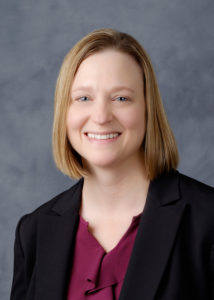Allison McWilliams: Reflect on learning

Allison McWilliams
Allison McWilliams is assistant vice president, mentoring and alumni personal & career development. She writes occasional articles for Inside WFU. This is her fifth for the spring semester. In each, she shares observations and suggestions with faculty and staff from her professional experiences with students.
“Habit rules the unreflecting herd.” – William Wordsworth
I love this quote from William Wordsworth. Another way of putting it, from the inimitable words of Rick and Morty, “Think for yourselves, don’t be a sheep.”
Both of these quotes sum up the last and final element of effective mentoring conversations:
- How are you being intentional with the choices and decisions that you are making?
- How are you setting goals and taking actions to pursue them?
- How are you seeking out feedback from mentors and wise counselors on your choices, decisions, and goals?
- And, how are you intentionally reflecting on what you are learning?
Reflection is critical to the educational process as a whole, and, critical to any effective mentoring conversation.
The mentoring conversation model is based upon experiential learning models: first, I identify a challenge, problem, or an issue; second, I set a goal and determine needed action steps; third, I take some action; and, fourth, I reflect on what I have learned and how I can apply that new knowledge in the future. The difference, in mentoring, is that the reflection piece happens in concert with another person, who brings his or her own experience and wisdom into the conversation, for deeper connections and reflection opportunities.
Mentoring relationships are goal-oriented relationships. But they are also learning-oriented relationships. The very purpose of any mentoring relationship is to end up somewhere different than you are right now, with greater knowledge and wisdom about yourself, your strengths and values, and what comes next for you. It’s an iterative process, always feeding into the next set of goals, the next learning process. But without the learning, mentoring becomes static and one-sided.
Reflection on who you are as a person, what you value, your choices and decisions, the goals you are setting, and what you are learning, is what breaks you out of simple habit. It prevents you from following the herd without asking where are we going, how are we going to get there, and why? I don’t know about you, but I want all Wake Forest graduates to be deeply reflective people, the kind of people who question systems and processes and don’t fall into the trap of “because we’ve always done it this way” thinking.
Be intentional. Be goal-oriented. Seek out feedback. Reflect on learning. These are the four critical elements of effective mentoring conversations, of growth from adolescence to adulthood, and of truly owning one’s life.
Categories: University Announcements
